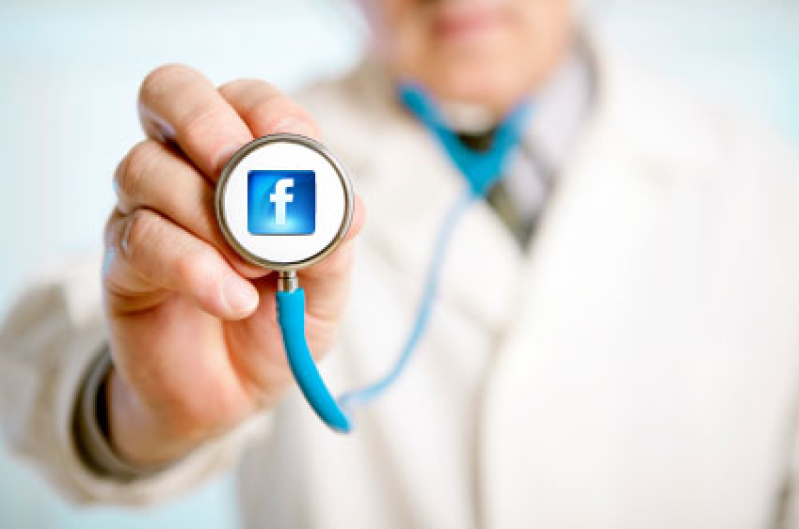
Many people may be willing to link their social media accounts to their medical records, a U.S. study suggests, a shift with the potential to improve care by giving doctors more insight into what makes patients tick.
Facebook and Twitter have more than 1.5 billion users worldwide, many of whom share information daily, leaving digital breadcrumbs that might offer clues into the attitudes and activities that influence their health, researchers note in the medical journal BMJ Quality and Safety.
More than half of patients may be Facebook or Twitters users, based on the study of people treated at one busy urban emergency department. Among those Facebook and Twitter users who agreed to join the study, 71 percent let doctors access their social media accounts.
What happens after that is still to be determined, but the potential exists for social media to reveal important things about how disease begins, how patients manage medical conditions, and what things happening in patients' lives might be linked to disease progression or complications, said senior study author Dr. Raina Merchant, director of the Penn Medicine Social Media and Health Innovation Lab in Philadelphia.
"Increasingly, individuals are sharing lots of information on social media every day," Merchant said by email. "This information is in the form of posts, check-ins, photos and other data. Because much of this data is about day-to-day activities and general thoughts and feelings, it is also about health."
To assess the feasibility of linking social media accounts to medical records, Merchant and colleagues asked more than 5,000 adult patients in the emergency department if they used Facebook and Twitter, and, if so, whether researchers could see their accounts.
Patients were more likely to grant access if they were younger, heavy social media users, and insured through private rather than government health plans, the study found.
Most often, patients who didn't share their social media accounts cited privacy concerns. Some patients also feared sharing the data might affect their employment.
For the accounts researchers did review, they estimated about 7.5 percent of Facebook posts were contextually related to health.
Patients with common diseases and symptoms in their medical records were also more likely to use terms related to these conditions on Facebook than people without diagnoses.
Limitations of the study include its focus on a single emergency department, and the possibility that the results might be different for people with less serious or urgent health problems, the authors acknowledge.
A lot of logistical and ethical issues also need to be worked out before patients start signing away access to social media accounts to doctors, noted Dr. Elissa Weitzman, a researcher at Boston Children's Hospital and Harvard Medical School. Among other things, privacy and the accuracy of this information need to be considered, Weitzman, who wasn't involved in the study, said by email.
But particularly in emergencies, giving doctors social media access might save lives.
"Social media data could provide descriptive information about health histories and behaviors that are helpful for building out the 'digital health phenotype' for patients," Weitzman said. "In a perfect, creative and well worked through digitally enabled world, real-time mining of social media content could be revealing allergies, medications or health problems that are otherwise unknown which could alter treatment decisions in an emergency situation and be life-saving."







